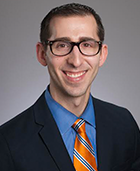How Can We Better Prepare Residents for Psychopharmacologic Treatment Planning?
Abstract
Psychopharmacologists today must appreciate the pharmacodynamics, pharmacokinetics, possible drug-drug and drug-food interactions, know how to titrate the medication, and be familiar with laboratory measures to guide effective psychopharmacologic treatment planning.

The practice of psychiatry has changed tremendously over the last 30 years, as psychiatrists conduct psychotherapy less and prescribe medicines more (1).
Such change is partly due to the continued development of medications that can effectively suppress symptoms of depression, anxiety, psychosis, addiction, and inattention. The number of psychotropics approved by the Food and Drug Administration (FDA) is large and growing, and researchers are making important pharmacodynamic discoveries at both the membrane-receptor and intracellular levels.
To be an effective psychopharmacologist, simply knowing the indications for a medication is not sufficient; you must also appreciate the pharmacodynamics, pharmacokinetics, possible drug-drug and drug-food interactions, and know how to titrate the medication. Additionally, you must also be prepared to use laboratory measures to guide effective psychopharmacologic treatment planning and minimize the incidence and severity of side effects for patients.
Are today’s psychiatric residents prepared to practice psychopharmacology upon graduation? How do we as educators most effectively impart this knowledge to residents and how do we accurately measure their readiness for practice?
Unfortunately, we have little information to answer these questions. A small survey study I conducted suggested that many third year psychiatry residents across the country lacked experience initiating mood stabilizers (2). The ACGME Program Requirements for Graduate Medical Education in Psychiatry offer very little in the way of required psychopharmacology experiences (3). Although the Psychiatry Resident-In-Training Exam includes questions that test psychoparmacology knowledge, it also includes questions about many other psychiatric topics making it a better assessment of general psychiatric knowledge than of psychopharmacology. The Psychiatry Milestones Project, a novel method for assessing psychiatry residents’ development throughout their training, evaluates a resident’s psychopharmacology knowledge but relies on the psychiatry educator’s global impression of the resident, which may be vulnerable to recency effects and only limited understanding about a resident’s actual knowledge.
During the “Optimizing Psychopharmacology Training During Residency” at APA’s 2016 Annual Meeting, I joined with several experts to discuss several ways we might ensure residents are better prepared to initiate and manage the psychopharmacologic treatment planning of patients. Such strategies include the creation of standardized, multimedia psychopharmacology curriculum; tools to guide and assess resident-patient interactions during medication-management visits; and surveys to assess residents’ confidence levels initiating various psychotropics.
At Emory, all third-year residents rotate through the psychopharmacology clinic where they receive real-time, individual supervision from faculty with psychopharmacology expertise. They also participate in biweekly interactive discussions focusing on pharmacodynamics and pharmacokinetics, which forces them to articulate their knowledge and master the terminology used to describe pharmacology. Each resident is required to give an oral presentation in front of faculty and other residents analyzing the literature supporting the use of a particular psychotropic for a specific psychiatric indication. This ensures that the residents have the requisite skills to critically evaluate the psychopharmacology literature.
Residents are also expected to track the psychotropics they have prescribed throughout the clinic year using a medication log. Their log and the confidence levels reported when surveyed at the end of the year can be used to provide additional, personalized psychopharmacology supervision in their final year of residency so that we can prepare them further for independent practice.
Psychiatric educators have a public health and professional responsibility to ensure that residents are competent in this important area of training.
We hope that our workshop generated innovative ideas for teaching practical psychopharmacology to residents and for assessing residents’ mastery of this information in ways that are both valid and reliable. The clinical experiences of academic and nonacademic psychiatrists will play an important role in helping us shape this crucial, yet understudied, aspect of psychiatric education. ■
1. Mojtabai R, Olfson M. National trends in psychotherapy by office-based psychiatrists. Arch Gen Psychiatry. 2008; 65:962-970.
2. Rakofsky JJ, Dunlop BW. US psychiatric residents' treatment of patients with bipolar disorder. J Clin Psychopharmacol. 2012; 32:231-236.
3. Accreditation Council for Graduate Medical Education. ACGME program requirements for graduate medical education in psychiatry; Accessed April 27, 2016.



